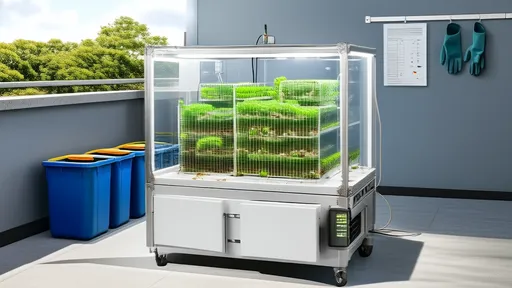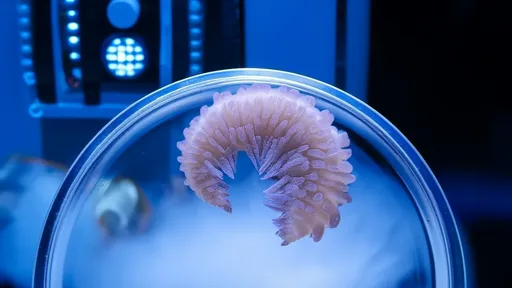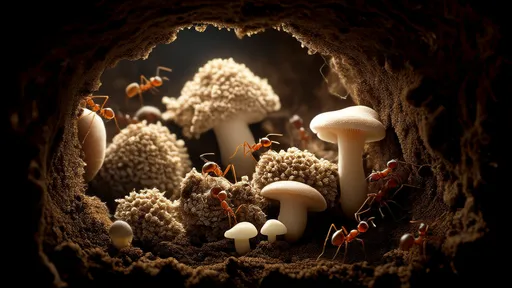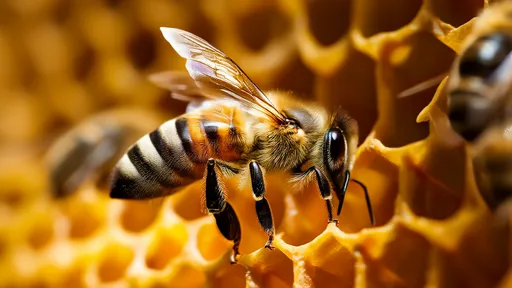The world of fermented foods is a fascinating intersection of microbiology, culinary tradition, and human health. For centuries, cultures across the globe have harnessed the power of microbial fermentation to preserve food, enhance flavors, and promote well-being. Today, modern science is unraveling the intricate relationships between these living foods and our gut microbiota, revealing a complex health landscape where probiotics play a starring role.
The Microbial Alchemy of Fermentation
When we peer into a jar of bubbling kombucha or slice into a wheel of aged cheese, we're witnessing the culmination of microbial transformations. Lactic acid bacteria, yeasts, and other microorganisms work in concert to break down carbohydrates and proteins, creating that characteristic tang in yogurt, the umami depth of miso, and the effervescence of sourdough bread. This biological process does more than create appealing flavors and textures—it generates bioactive compounds and cultivates beneficial bacteria that can survive the journey through our digestive tract.
Recent metagenomic studies have shown that traditional fermentation practices often cultivate complex microbial communities that outnumber the starter cultures added to commercial products. The kimchi pot in a Korean household or the sauerkraut crock in a German basement becomes a thriving ecosystem where different species interact, compete, and support each other in ways we're only beginning to understand.
The Gut Connection: Beyond Digestion
The health implications of fermented foods extend far beyond their nutritional content. When we consume these probiotic-rich foods, we're essentially introducing microbial allies into our gastrointestinal tract. These organisms interact with our resident gut microbiota—the trillions of bacteria that call our intestines home—in ways that can modulate immune function, influence neurotransmitter production, and even affect metabolic processes.
Clinical research has demonstrated that regular consumption of fermented foods can help maintain the integrity of the gut barrier, reducing systemic inflammation. This is particularly significant because low-grade chronic inflammation has been linked to numerous conditions, from cardiovascular disease to depression. The short-chain fatty acids produced when these probiotics ferment dietary fiber in our colon serve as both energy sources for our gut cells and signaling molecules with far-reaching effects throughout the body.
Diversity Matters: The Fermented Food Spectrum
Not all fermented foods are created equal when it comes to probiotic potential. Live-culture yogurt and kefir typically contain well-documented strains like Lactobacillus bulgaricus and Bifidobacterium lactis, while traditional fermented vegetables host a wilder array of organisms. The spicy kick of Korean gochujang comes from its unique microbial profile developed during the months-long fermentation of soybeans, rice, and chili peppers.
Interestingly, the microbial content can vary dramatically between homemade and commercial versions of the same fermented food. Mass-produced products often undergo pasteurization that kills beneficial bacteria, while small-batch artisanal versions retain their living cultures. This distinction highlights why many nutrition researchers recommend seeking out traditionally prepared fermented foods rather than their shelf-stable supermarket counterparts.
Personalized Fermentation: The Future of Probiotic Nutrition
As we deepen our understanding of the human microbiome, a new paradigm of personalized probiotic nutrition is emerging. Scientists are investigating how individual differences in gut microbiota composition might determine which fermented foods provide the most benefit for a given person. Someone with a particular microbial profile might derive more advantage from daily miso consumption, while another individual's system might respond better to kombucha or kvass.
This personalized approach acknowledges that our relationship with fermented foods is part of an ancient symbiosis between humans and microbes—a relationship that has co-evolved with our dietary practices across cultures and generations. By embracing the microbial diversity in traditional fermented foods, we're not just preserving culinary heritage; we're nourishing an internal ecosystem that profoundly influences our health.
The exploration of fermented foods as probiotic powerhouses continues to yield surprising discoveries. From unexpected mental health benefits to novel antimicrobial compounds produced during fermentation, this field reminds us that some of the most sophisticated nutritional technologies were developed centuries ago through observation, tradition, and a bit of microbial magic. As we bridge the wisdom of traditional food practices with cutting-edge microbiology, we're rediscovering the profound health potential in these living foods.

By /Aug 7, 2025

By /Aug 7, 2025

By /Aug 7, 2025

By /Aug 7, 2025

By /Aug 7, 2025

By /Aug 7, 2025

By /Aug 7, 2025

By /Aug 7, 2025

By /Aug 7, 2025

By /Aug 7, 2025

By /Aug 7, 2025

By /Aug 7, 2025

By /Aug 7, 2025

By /Aug 7, 2025

By /Aug 7, 2025

By /Aug 7, 2025

By /Aug 7, 2025

By /Aug 7, 2025

By /Aug 7, 2025

By /Aug 7, 2025